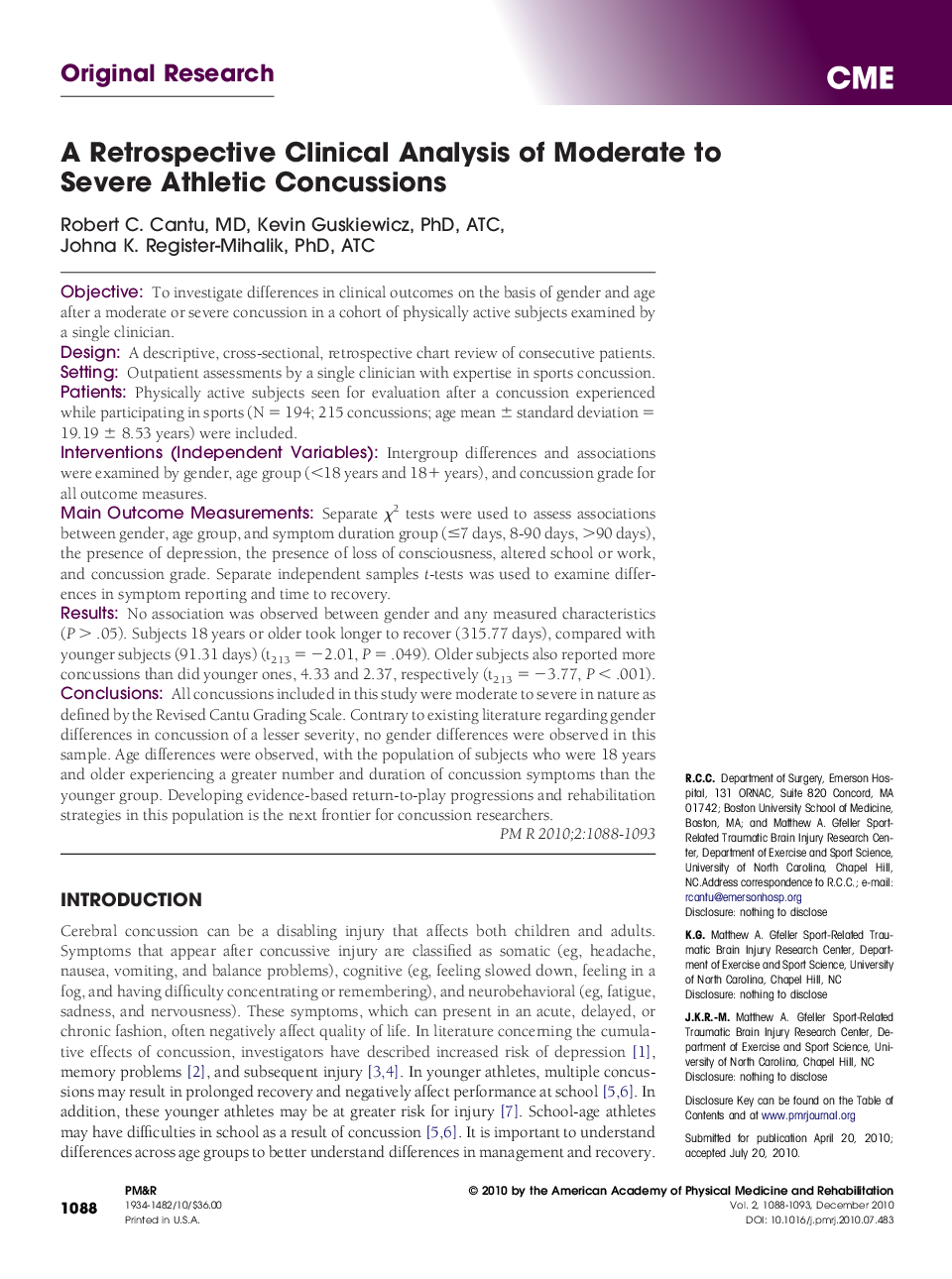| Article ID | Journal | Published Year | Pages | File Type |
|---|---|---|---|---|
| 2706193 | PM&R | 2010 | 6 Pages |
ObjectiveTo investigate differences in clinical outcomes on the basis of gender and age after a moderate or severe concussion in a cohort of physically active subjects examined by a single clinician.DesignA descriptive, cross-sectional, retrospective chart review of consecutive patients.SettingOutpatient assessments by a single clinician with expertise in sports concussion.PatientsPhysically active subjects seen for evaluation after a concussion experienced while participating in sports (N = 194; 215 concussions; age mean ± standard deviation = 19.19 ± 8.53 years) were included.Interventions (Independent Variables)Intergroup differences and associations were examined by gender, age group (<18 years and 18+ years), and concussion grade for all outcome measures.Main Outcome MeasurementsSeparate χ2 tests were used to assess associations between gender, age group, and symptom duration group (≤7 days, 8-90 days, >90 days), the presence of depression, the presence of loss of consciousness, altered school or work, and concussion grade. Separate independent samples t-tests was used to examine differences in symptom reporting and time to recovery.ResultsNo association was observed between gender and any measured characteristics (P > .05). Subjects 18 years or older took longer to recover (315.77 days), compared with younger subjects (91.31 days) (t213 = −2.01, P = .049). Older subjects also reported more concussions than did younger ones, 4.33 and 2.37, respectively (t213 = −3.77, P < .001).ConclusionsAll concussions included in this study were moderate to severe in nature as defined by the Revised Cantu Grading Scale. Contrary to existing literature regarding gender differences in concussion of a lesser severity, no gender differences were observed in this sample. Age differences were observed, with the population of subjects who were 18 years and older experiencing a greater number and duration of concussion symptoms than the younger group. Developing evidence-based return-to-play progressions and rehabilitation strategies in this population is the next frontier for concussion researchers.
